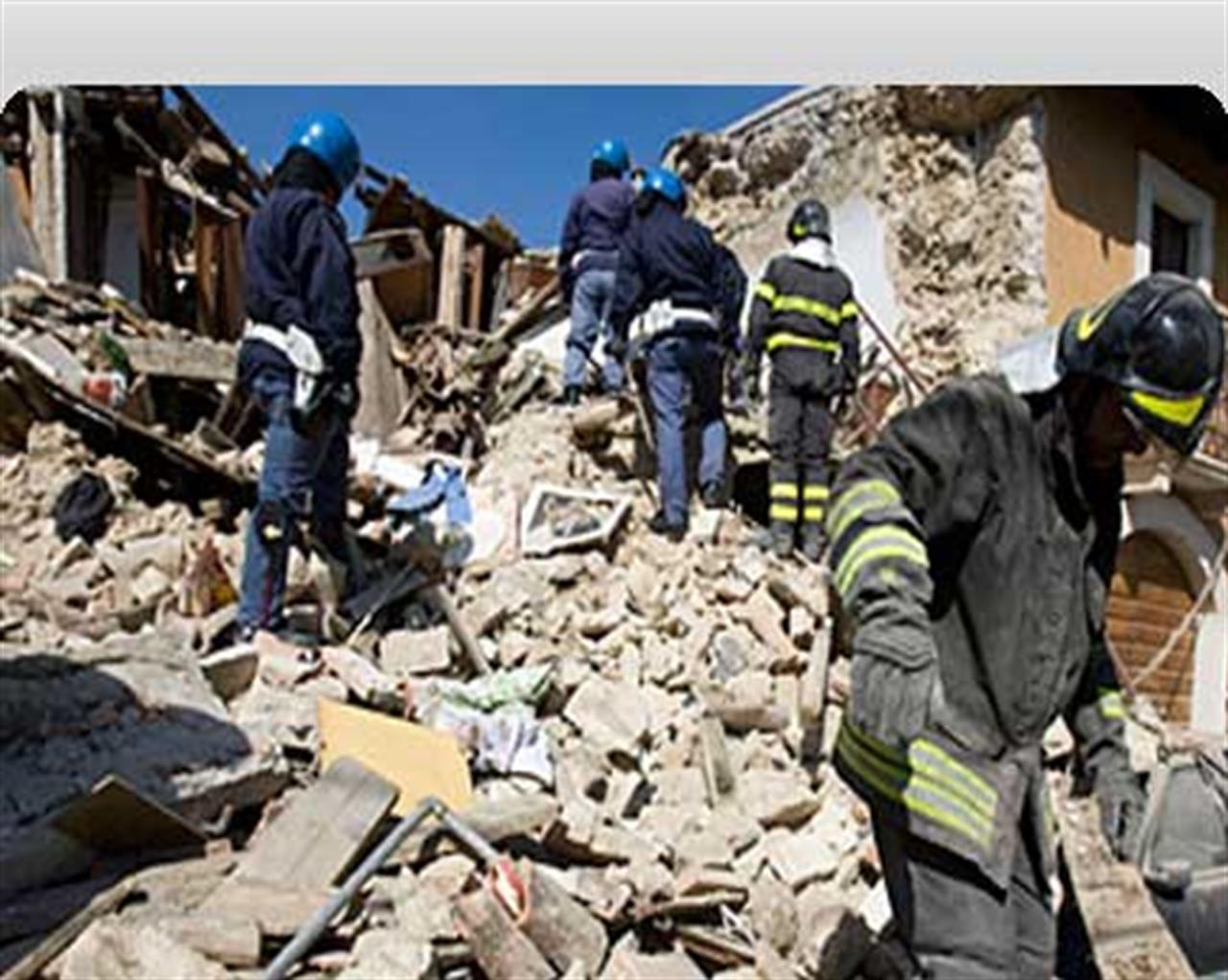Non profit
250 reported dead in Italian earthquake
250 people were killed, hundreds injured and tens of thousands left homeless in L’aquila’s region today after a powerful earthquake shook the area, severely damaging a historic city and surrounding villages.
di Staff

Dozens of people were crushed in their beds as the tremor with a registered magnitude between 5.8 and 6.3 struck the Abruzzo region at 3.32 am with an epicentre close to L’Aquila, the local capital with nearly 70,000 inhabitants, where a number of buildings were levelled.
It was the country’s deadliest tremor since the Irpinia quake in the south in November 1980, which killed more than 2,500 people.
Approximately 100,000 people may have been left homeless by this morning’s quake, said Luca Spoletini, an Italy’s civil protection agency spokesman. The need for shelter is all the more urgent in a region where night-time temperatures remain just above 5° C.
The prime minister, Silvio Berlusconi, declared a state of emergency and announced he was cancelling a scheduled trip to Russia to co-ordinate the government’s response. Neighbouring countries offered assistance and the US president, Barack Obama, was among the first to send his condolences.
L’Aquila was left in a state of chaos, with dozens of buildings collapsed and many others, even newer blocks, left with jagged tears down walls. Following the Irpinia quake in 1980, construction codes were introduced which were intended to ensure all modern buildings could withstand tremors.
A thick layer of pale dust thrown up by the shaking covered every surface. “The situation is terrible, really terrible,” said the city’s mayor, Massimo Cialente.
As a series of strong aftershocks jolted the region, thousands of local people began to flee, many on foot, draped in blankets to ward off the cold and carrying suitcases.
Rescue efforts were hampered by rubble blocking roads. At the site of one four-storey apartment block in L’Aquila, now collapsed to a height of about two metres, emergency workers clawed away chunks of rubble with their hands to try to reach at least four people believed to be trapped inside.
“I woke up hearing what sounded like a bomb,” Angela Palumbo, 87, said as she took shelter on the streets. “We managed to escape with things falling all around us. Everything was shaking, furniture falling. I don’t remember ever seeing anything like this in my life,” she told Reuters.
Among the damaged buildings was a student residence in L’Aquila, a popular student city. “We managed to come down with other students but we had to sneak through a hole in the stairs as the whole floor came down,” said one student, Luigi Alfonsi, 22. “I was in bed. It was like it would never end as I heard pieces of the building collapse around me.”
Dozens of injured people were waiting outside the city’s main hospital, which was only partly open after suffering damage, according to local reports. Another hospital was closed owing to fears for its structural safety, and those most seriously hurt were being flown by helicopter to other cities.
Some surrounding villages, where a greater proportion of homes were older, are feared to have fared even worse.
The small town of Onna was particularly hit by the earthquake, which caused the collapse of the 50% of the houses and damages to the other 50%. The Province’s President Stefania Pezzopane declared that, in this village, the death toll amounts to 8 and 20-30 people are missing.
People in Tempera, a few kilometres east of L’Aquila, told the Guardian that virtually every house in the historic village centre had been flattened, with many people feared dead.
“The quake was so strong. I was woken from my bed and when I tried to get up I fell over,” one man said.
As a construction worker with access to building equipment he had helped with rescue efforts, and had so far helped remove 10 bodies from the rubble, he said.
A witness in Paganica, close to Tempera, said the village “looks as if it has been bombed”.
The last significant Italian earthquake was in 2002, when 27 children and one adult died after a school collapsed in Molise, in the south of the country.
Sources:
www.guardian.co.uk
www.corriere.it
www.alertnet.org
Si può usare la Carta docente per abbonarsi a VITA?
Certo che sì! Basta emettere un buono sulla piattaforma del ministero del valore dell’abbonamento che si intende acquistare (1 anno carta + digital a 80€ o 1 anno digital a 60€) e inviarci il codice del buono a abbonamenti@vita.it
